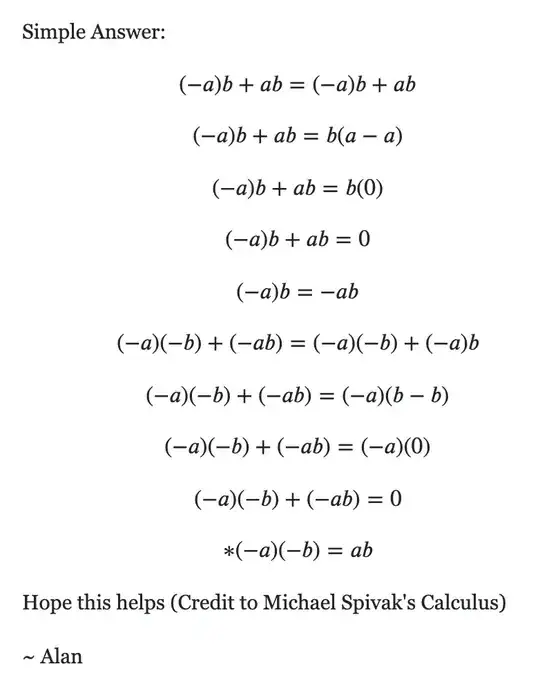This may come across as very confusing, but I'm genuinely confused about the relationship between math as a system humans defined and the "real, physical world."
I feel like when I was in elementary school, we defined arithmetic in terms of physical objects. Let's define addition: if I have 2 apples and you give me 3, I then have 5. We can do the same for subtraction/multiplication/division. Then, we can ask ourselves, "if I have 2 apples, how many apples do you need to takeaway for me to have 0 apples" - we define this as (-2), the additive inverse of 2. But then we need to define arithmetic on negative numbers. If I'm in debt to you 8 apples and in debt to you another 5 apples down the road, then I'm 13 apples in debt to you - this is addition of integers. We can do something similar for subtraction.
But then I get so confused about what to do for multiplication and division since it makes not much sense. Like if I'm in debt to you 8 apples, what does it mean to divide by 2 or -2? Intuitively, I can view it as direction on the real number line (2 negatives = a positive), but this is just pure intuition that has no physical correspondence to the world.
At this point, I wonder whether it's very unhelpful to think in terms of physical objects. So at this point, how do you proceed? Maybe we can use axioms like this answer
Now, we're not using the physical world to guide us anymore, we're using pure math in terms of axioms. And yet, this pure math in terms of axioms coincides with our intuitive understanding of the world (that negative * negative = positive). Is this a coincidence? Like, how is it that our intuition about the world coincides with the proof by pure axioms that negative * negative = positive?
I have no idea if any of this makes sense: I guess the confusion at heart is how we know math represents the physical world, and "what informs what."
If anyone can give me some reading, that'd be helpful too.
On a final note, I don't think my question fully explained my confusion because I'm lost in my thoughts. Any broad comment or reading that doesn't explicitly answer my question is helpful too.
